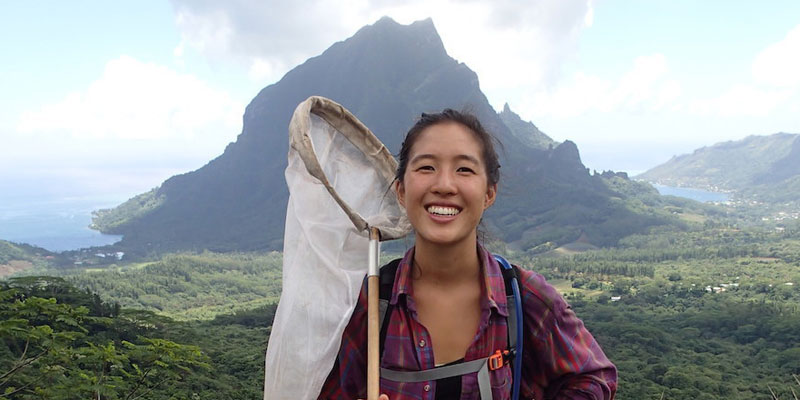Angela Braren is a co-founder of the crowdfunding platform Instrumentl, alongside Victoria Kentner and Katharine Corriveau. They set up the company after Angela’s crowdfunding experience had taught her that smaller amounts were relatively easy to crowdfund. Instrumentl helps female researchers gain a direct route to funding for their projects.
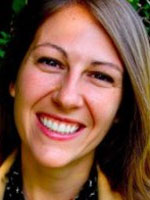
“…Fundraising is already the hardest part of the job. It gets harder when a supervisor tells you that you didn’t get the field job because “you’re just another pretty girl from Barstow,” or a peer editor tells you to add a male author if you want your journal article to be considered seriously (those things actually happened, sadly)…”
The idea to set up our own crowdfunding platform
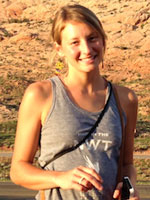
Tori, Kat, and I were all field scientists before we started Instrumentl. Tori’s a marine scientist, Kat studied alpine plant ecology, and I worked on salmon restoration in New England. Despite how much we love field work, we literally couldn’t afford to do it anymore.
We also saw this happening to our friends. Some of the coolest researchers we knew were turning down career-advancing opportunities because they didn’t have the funding. One of Instrumentl’s researchers, now our good friend, Alexis, invented a new way to understand coral reefs for their conservation, but she couldn’t implement her work because she couldn’t afford the $1,500 to get time on the electron microscope. That’s kind of crazy.
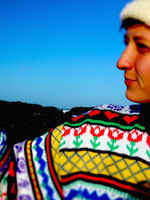
We’ve got all of these budding innovators solving some of the world’s most pressing problems, but their hands are tied because of one or two thousand dollars.
Crowdfunding seemed like the way to help. I had just come off of working on a crowdfunding campaign for a non-profit and realised how easy it was to crowdfund small amounts (US $500-$5,000). That’s when we pitched the idea to Alexis. Tori, Kat, and I were going to build a crowdfunding platform (having no prior development experience) and Alexis was to be our first campaign.
Alexis was over-funded on Instrumentl, got on that microscope and published her results. She’s now in a PhD program at Temple University.
How we went about it
We built Instrumentl by putting one foot in front of the other. At the time that we conceived of Instrumentl, none of us had any development experience. Zero. But we believe in ourselves and I think that’s the key to building something out of nothing.
You’ve got to ignore that voice inside your head that is telling you that you “didn’t go to school for this,” or that you “don’t know what you’re doing.” At Instrumentl we turn that little voice into a joke. Even the smallest victories get high-fives on our team.
But I absolutely must give credit where it’s due. Instrumentl’s success truly belongs to our friends. We have a great network of female researchers, entrepreneurs, and thinkers. They’ve all chipped in to help whether it was to advise a research budget, make an intro, or share their brilliant ideas. While our team may appear to be three, in practice it’s more like 30.
How Instrumentl is funded
Instrumentl is a social good, for-profit company. Researchers chip in 7% of the total amount they raise through our platform to pay for Instrumentl’s operating expenses. That means the more researchers raise through our site, the larger our capacity to support others.
While this model will work well once we’re funding a dozen or more campaigns per month, Instrumentl is just a little hatchling of a company. All revenue goes to maintaining the web platform. All other expenses are paid out-of-pocket. It’s hard work and long hours, but we’re changing lives and advancing human knowledge and that could never have a price tag.
The response to our campaigns
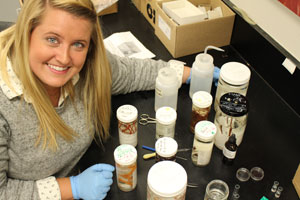
Our biggest fans are researchers. When my team and I first started telling people that we were the women behind Instrumentl, the gratitude that researchers showed us was surprising. I didn’t expect so many thank yous. These women are leaders in their field, I felt like I should be thanking them!
Donors have been great too. We find that the largest segment of donors comes from professional associations of the campaign creator/ researcher. This has been anyone from her undergraduate advisor, the senior project manager where she used to intern and / or the director of a professional society to which she belongs.
Challenges and opportunities of having a niche focus
What’s great about having a niche focus is being able to create something that our users are wild about. We understand the experiences of female researchers as they pan-handle for funds because we used to be them. So, in that way, we can create not only what they would use, but what they need.
We’ve built a tight-knit community at Instrumentl and I think there are a few reasons for that. Firstly, there’s an unspoken acknowledgement among women in research that they experience additional hardship in their work and because of that they stick up for one another.
Fundraising is already the hardest part of the job. It gets harder when a supervisor tells you that you didn’t get the field job because “you’re just another pretty girl from Barstow,” or a peer editor tells you to add a male author if you want your journal article to be considered seriously (those things actually happened, sadly).
Secondly, these researchers are courageous, original, and unorthodox. That shared experience and identity connects them at a deep level. They are our modern explorers, braving the Sierras at 7,000 feet for months, dodging poachers in East Africa, and diving to dangerous levels in the icy Atlantic. They’re a different class of people, driven to their work to advance knowledge and make the world a better place. They often do it alone. Instrumentl brings them together.
With that said, the deeper we delve into solving the funding problem in research for women, the more clear it becomes that all researchers need help. We imagine a world where researchers spend less time worrying about fundraising and more time mitigating climate change and reducing disease.
Focusing on collective power and bringing 50% of the world’s population back into the conversation
At Instrumentl we don’t think women are any different at building collaborative networks than men. Researchers often work alone, but when they come together they’re very powerful, no matter their gender.
That’s a big part of Instrumentl’s mission, to focus that collective power on bringing 50% of the world’s population back into the conversation. If we can do that, we’ll be doubling the speed of innovation in a way that is reflective of the world’s diverse population and needs.
The most rewarding part of our work
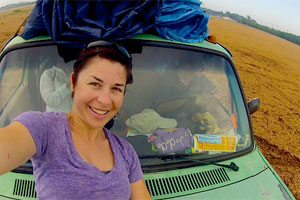
The best part of my job is watching our researchers’ campaign videos and getting to know them better. They all come to Instrumentl with fascinating stories about how they’ve been bootstrapped for funds and so hacked this or that aspect of the funding system.
Originally, Kristin, an entomologist, needed a 4×4 vehicle to access her field sites in Hawaii, but because of funding restrictions and her interest in cycling, she decided to ride a bike between sites, saving her money and the climate a little CO2. (By the way, Kristin is also a mother of two and a “non-traditional” student returning to her studies after time away to raise her kids.) Together, we’re raising the $2,600 she needs to take a research project full circle – from project implementation to data analysis and publication.
It’s these savvy, fly-by-the-seat-of-her-pants researchers, like Kristin, that come up with the most creative and effective solutions. Hawaii’s lucky to have her energy and passion in solving their epic struggle to save the islands’ endemics.
Plans for the future
In the short-term, we’re focused on helping as many female researchers as possible through crowdfunding – researchers in a variety of disciplines, like the hard sciences, the social sciences, the humanities, etc.
More long-term plans are offering a variety of ways for researchers to get funded in addition to crowdfunding. We’re really excited by the potential of these longer-term plans, so stay tuned – we have some things up our sleeves!
How Womanthology readers can get involved
Womanthology readers can join us in our quest to get every female researcher funded. They should also feel free to email me at Angela [at] Instrumentl.com
https://twitter.com/BeInstrumentl
https://www.facebook.com/Instrumentl

